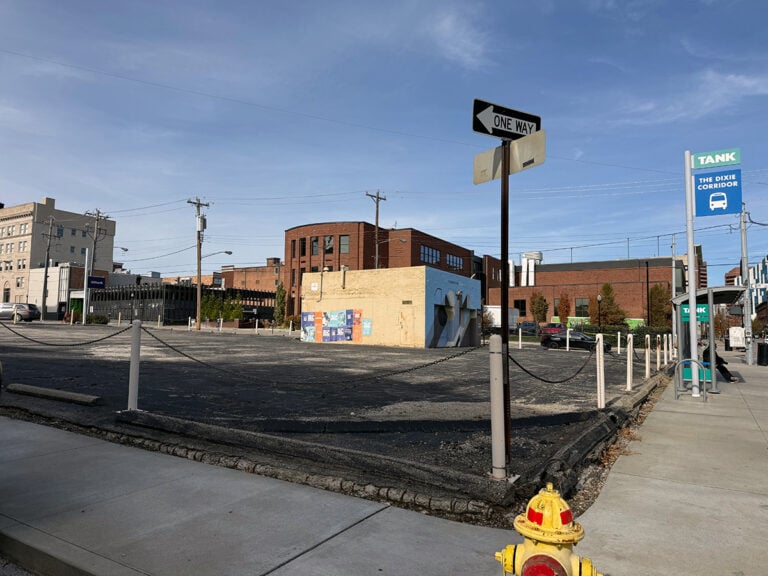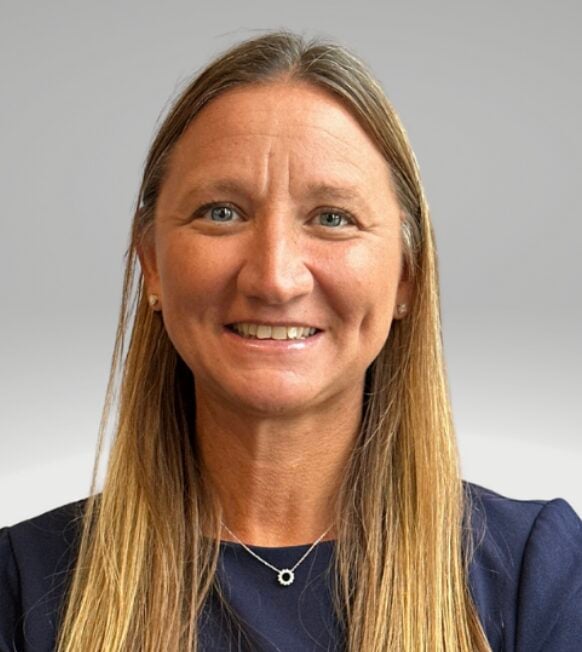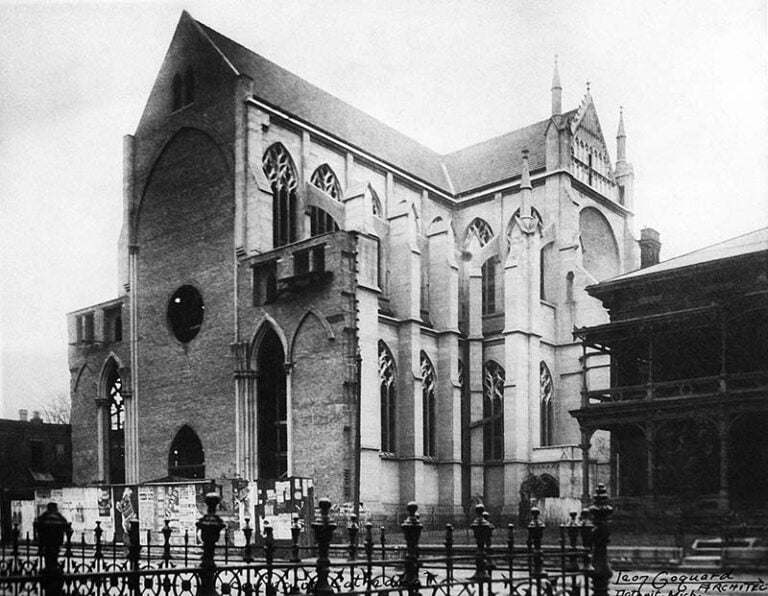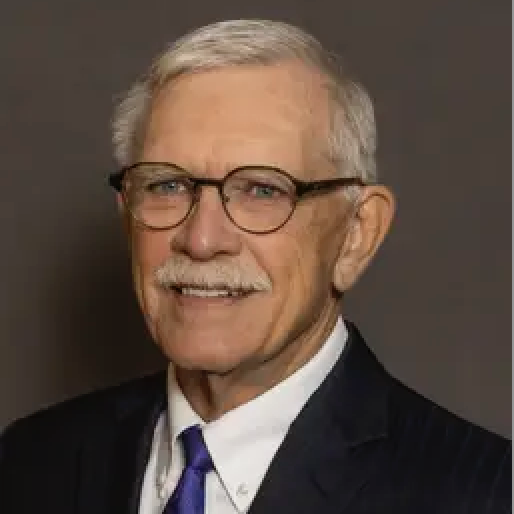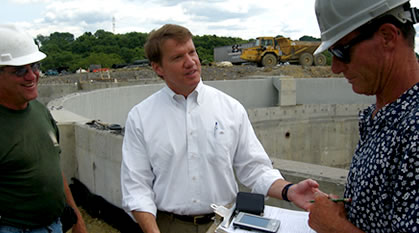
By Mike Rutledge
NKyTribune contributor
In a recent Q and A with the Northern Kentucky Tribune, Campbell County Judge-executive Steve Pendery shared his thoughts on Campbell County development and the overall state of the county.
Among the judge-executive’s observations were that Northern Kentucky counties should not compete amongst themselves to lure businesses. He expressed frustration that some believe Campbell County is not as successful as its Northern Kentucky neighbors. He pointed to statistics from Northern Kentucky University’s Center for Economic Analysis and Development that Campbell County overtook Kenton in 2013 in median household income, with $54,306 to Kenton’s $54,270. Boone County’s median household income, is $67,225.
Q: How would you evaluate Campbell County overall?
A: I think we are really doing well. There is a level of awareness on the part of leadership (in the county), and for that reason they’re moving things in the right direction. This last election cycle I had a bunch of people giving me grief about how Campbell County doesn’t lead in anything. Well, almost out of self defense, I looked back 20 years prior, which just about coincided with my original election (as judge-executive in 1998). What I found was in some cases we might be second or third to the other two counties, but all three counties are way ahead of almost all the rest of the state.

.. .There’s a mindset that some people have that we’re our own little island nation. They want to measure things according to whether it happens in Campbell County or not. So, for instance, if there’s a plant that opens in Boone County, we’re going to wring our hands and say it never happens here, without stopping to think that they’re just as likely to hire somebody to work in that plant who’s from Campbell County as they are to hire someone from Boone.
The prosperity of Northern Kentucky in general is lifting all boats, and you can’t draw a jurisdictional line and say because that didn’t happen here… It is true that our weakness is that we need more businesses in Campbell County. . .You want the tax base.
It’s far more important for the people who live here to make more money as a household than it is for me to get more money so I can run the animal shelter or the jail and the jail is 25-30 percent of our expenditures. So we’ve got the priorities right.
. . .We want more community and economic development in Campbell County and we are open for business and aggressively working at that. Now, Kenton and Boone counties have the largest single industrial park along the entire I-75 corridor…and we’re not going to have that. We don’t have the interchanges, we don’t have the expressway miles. We’re not going to have the same kind of development they do.
We support all the regional initiatives and growth of manufacturing. . .It’s absurd to believe that because a factory’s located a couple miles across a county boundary that we can’t benefit from it.”
Q: 16 years as Judge-executive is a long time to serve. Why did you run originally?
A: Growing up I thought I was going to be a politician someday, so I worked in campaigns from the time I was a little guy. I ran for city council when I was still in my 20s. And I was a city councilman and then I was the mayor of Fort Thomas for 15 years. That’s because I thought you should start at the beginning and learn.
Q: What gave you that desire at a young age?
A: Some people want to be a fireman, some want to be a veterinarian or something. I wanted to be in politics.
Q: Was there a specific person?
A: There were a couple. There was a guy named Jack Steinman, a good friend of my parents. He had a right-hand man by the name of Jack Cook, who might have been my Dad’s best friend. And Jack Steinman and Jack Cook recruited and sponsored about every Republican in Campbell County for a stretch of several decades, including Jim Bunning.
“If there’s a plant that opens in Boone County, we’re going to wring our hands and say it never happens here, without stopping to think that they’re just as likely to hire somebody to work in that plant who’s from Campbell County as they are to hire one from Boone.”
The first campaign I remember working in was (Sheriff) George Ratterman, I was 9 years old, and all those people I just mentioned – Jack Steinman, Jack Cook, my Dad – they were all in the Committee of 500 (created to clean up corruption in Newport). It seemed like every year thereafter, there was a political thing going on. What was really cool about it looking back is all these guys were focused not so much on making Republicans competitive – and they weren’t at the time – but we have to do what’s in the best interest of the public.
. . .There were a whole lot of influences and all this from churches. At that time, the churches were unhappy with the gambling and the lifestyle that went with it. So it really was a push to make the community better. That’s kind of the way I was brought up in politics, and I’m very happy about that, because I think it’s the right perspective.
Q: What are you most proud of in your time as judge-executive?
A: I think that’s it. Northern Kentucky really does have a network of leaders who are looking out for the best interests of the community. (They) are not obsessed, like they are at other levels of government, with getting re-elected, to the exclusion of the public’s interests. It’s not really like that in local government.
There are exceptions, but most of the time people get into local government. . .(to) work for the common good and it doesn’t wind up being a big party free-for-all. It doesn’t wind up being an adversarial thing so much.
When you think about it, for several generations now probably in Northern Kentucky there’s been a network of leadership that’s well-entrenched and established, and influential, that’s looking out for the best interests of the community. It isn’t just the political side of things. It’s also the business side, with the merger and the growth of the Chamber and the educational community. You’ve got the colleges working with the high schools, and down into the grade schools.
There’s the coherent picture of what needs to be done educationally that they all work toward. It’s really impressive, and those are the things that I’m proudest of, being involved in that kind of leadership structure. That also points to my biggest fear, which is we’ve got to hold that together and strengthen it and not let the consensus-making apparatus deteriorate or dissipate.”
Q: What’s a threat to that?
A: There’s kind of a generational thing. We’ve been fortunate to have some powerful personalities that have dug in there for years and kept things heading in the right direction, and in an intelligent direction. That would be across all the categories that are involved in this leadership, like (former NKU President) Jim Votruba, say, or a Wayne Carlisle, or a Bill Butler, or Bill Robinson.
There have been people who have devoted their lives and their spare time, and sometimes their fortunes, to moving Northern Kentucky ahead. And we need to find replacements for folks like that in the next generation. That needs to be our thrust – our goal.
Q: What do you hope to have achieved by the next judge-executive election in four years?
A: There are long-term goals and then there are short-term things. In the short-term, we still have heroin as the top priority. It’s making a wreck of local government and of our community.
We had 40 jail cells in this county when I was growing up, we had about 130 in the jail when I first got to be judge executive, and we will shortly have 690 beds. And 80 percent or more of the people in the jail all along have had alcohol and drug problems, but it’s been a less complicated set of issues to deal with and much less volume than what we have now.
Over half the people in the jail are there because of heroin. The jail is, give or take, a quarter to a third of our budget and half our manpower, and the epidemic shows no signs of slowing. The carnage goes on and on (because) once a person’s an addict, they’re always an addict, even if they’re not using. I know that everybody who pays attention is aware of that now, but that has to be mentioned first, because it’s consuming our resources at an alarming clip and it’s a huge financial threat for the future.
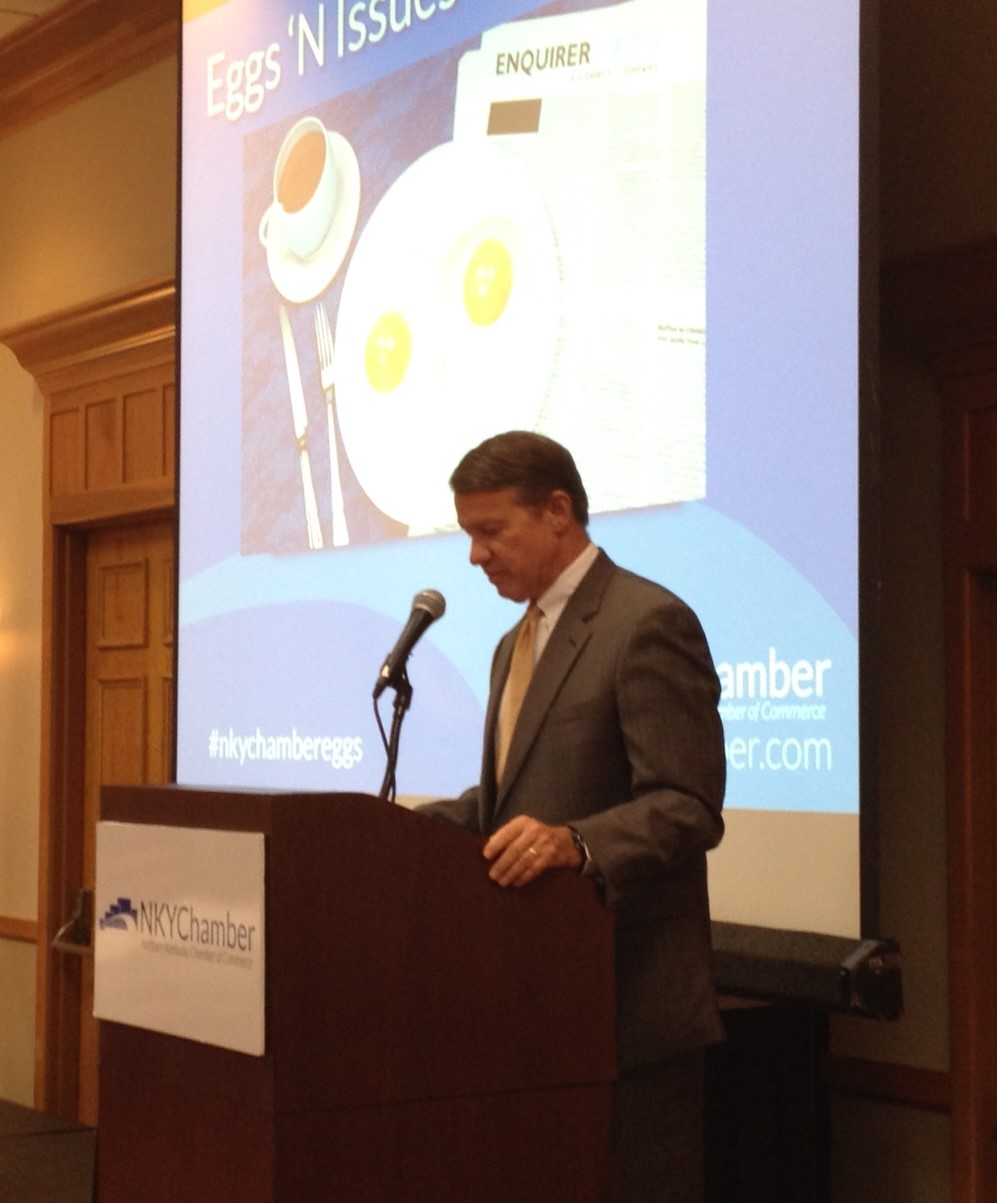
Q: What’s the plan to attack the heroin problem?
A. There’s a whole spectrum of things you might consider necessary, starting with education on one end, which is something that really needs attention. We need to stop people from experimenting with it and getting addicted in the first place, but this spectrum runs from education to law enforcement.
(We need) education, law enforcement, treatment options and after care, maintenance kinds of things, and a lot of stuff in between. But you can see immediately that when this thing reared its ugly head, our community would be best prepared to do the law-enforcement part, because we had police, we had jails already. We have no experience in local governments with treatment. And for a lack of capacity elsewhere in the community to handle this thing, we’re having to get involved in that and there are bottlenecks everywhere. We’ve been working on it. There have been hundreds of volunteers in the effort, with a plan that was announced and put in place in November of 2013? – and a lot’s been accomplished – but it’s a huge and very expensive proposition.
Q: What do you think is the solution to the Brent Spence Bridge problem?
A: I think that the original prescription was correct, and we need a bridge in the original corridor the expressway occupies right now. I think it’s a good idea to examine this whole notion that we can do an end-run on the whole thing and put a new expressway across virgin territory. But that’s not going to solve the problem. It’s something that should be considered in addition to the Brent Spence Bridge. So this is another example of us sort-of flinching from our responsibilities.
Q: What about transportation needs? It seems your needs are different from Boone County, which needs more and bigger roads.
A: They need more and better transportation and a lot of the rest of us need to maintain what we have. We still need more. But they need more of everything because they’ve had such growth. Ralph Drees and I years ago went down to Frankfort to talk about the gas tax, which has actually dropped off in the last legislative session.
We were there to tell them that you guys have to keep your eye on the ball. That’s what we had in mind to say. But before we said it, the Transportation Cabinet rolled out an incredible presentation that made the point that there’s sort of a maintenance curve for a road.
If you build a road and you maintain it, you’ll get this much life out of it, right? If you build a road and you do not maintain it, you’re going to not only get shorter life out of the road, we all understand that, but you get out to a place where the quality of the road is starting to degrade. If you do not intervene and do the things you should, well then, you might have to rebuild the whole thing.
“There have been people who have devoted their lives and their spare time, and sometimes their fortunes, to moving Northern Kentucky ahead. And we need to find replacements for folks like that in the next generation. That needs to be our thrust – our goal”
So it is stupid to build roads and then not maintain them because you’re going to find yourself in a place where you’ve got a huge expenditure, compared to the maintenance cost.
Then they popped up this statistic, and I’m never going to forget this, but I may not say it exactly right. The maintenance and replacement cycle on bridges in Kentucky, at the then-current level of expenditures, was 500 years. Meaning that at the current rate of expenditure, doing maintenance and replacing the bridges we had, it’d take 500 years to catch up with what needed to be done. That’s why we’re having trouble right now, as a nation, with our finances. Because we haven’t been doing the maintenance, we haven’t been responsible, and it’s catching up to us.”
. . .We need to be spending our money more wisely, but you still have to spend the money. You have to make the investments.
Q: Are you going to run again?
A: I don’t know. I didn’t know that I was going to run the last time.
I don’t think that far ahead, really because we’re looking after the best interests of the people here, and we’re not sitting here conniving at something that’s going to get us elected.
While we’re talking about things that have really gone well here, we have a wonderful group of people working in Campbell County government now. I don’t want to say we didn’t have wonderful people 20 years ago, but let’s just say that there’s a huge difference in capability in this government now.
A lot of the cities, we have 15 of them, they might have a clerk, no city manager, no real capacity to do things that in a world of ever-increasing complexity need to be done. So why can’t we do that?
We’ve got an IT staff that knows what kind of programs they need, literally what kind of software they need to run their agency, and is already conversant with how to handle that stuff. So we can go out, even for the city of Fort Thomas and collect their taxes, and collect taxes for the other little cities in a more efficient way than they could do it on their own. We can provide IT services, we can do building inspections.
We’re not trying to build an empire, it’s just we’re trying to gain economies of scale.
Campbell County Judge-executive Steve Pendery, 61, was elected to his first term in 1998. Prior to that the lifelong Campbell County resident was a Fort Thomas city councilman from 1984 to 1990 and served as the city’s mayor from 1990 to 1998. He is the co-owner of Pendery Insurance and Risk Management Group.







